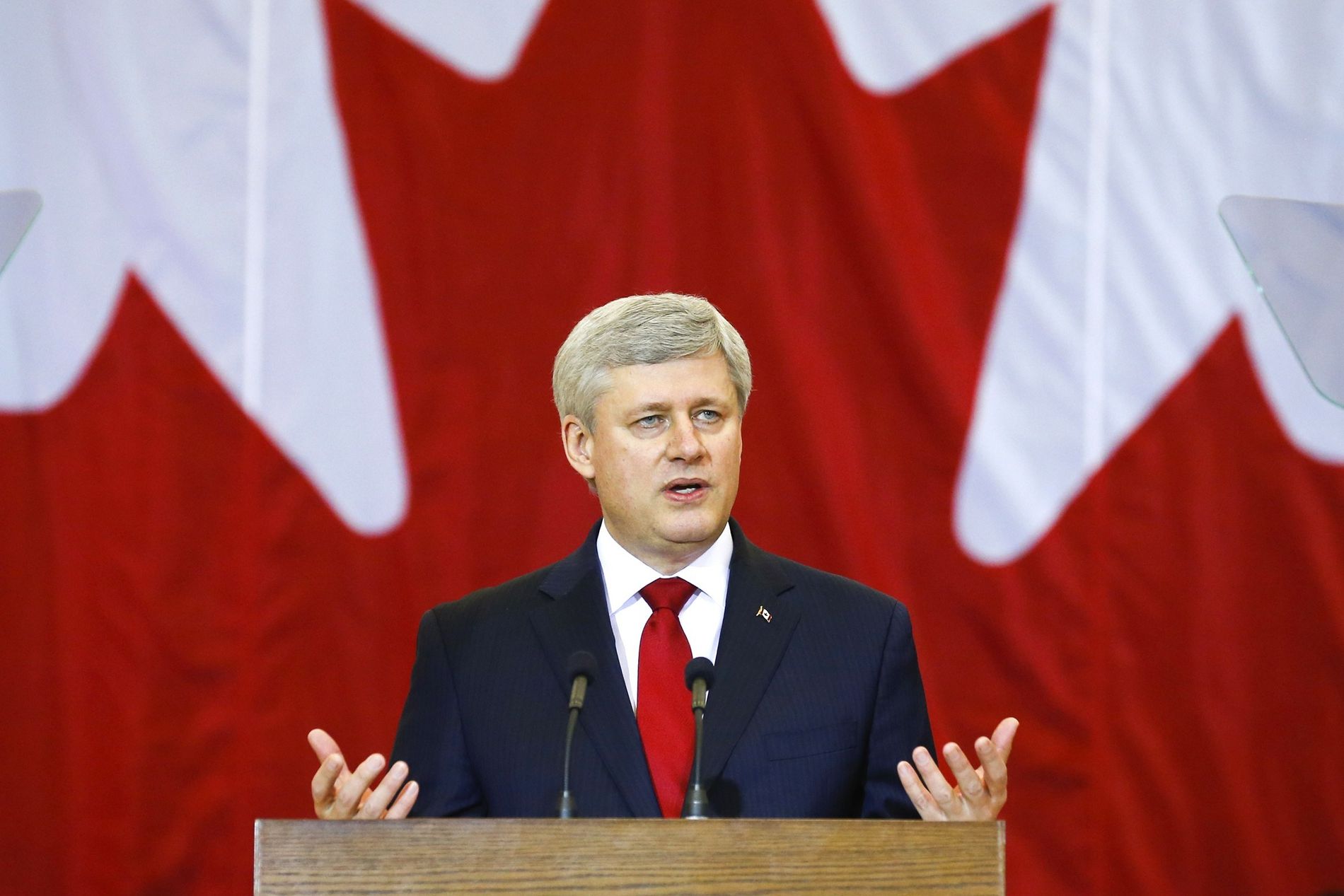
Stephen Harper made a series of thinly veiled criticisms of China’s economic model in a visit to Taiwan Tuesday – the first by a former Canadian prime minister – warning that global trade tensions are likely to grow increasingly severe.
Invited to Taipei to discuss the book he published last year, Mr. Harper also met with President Tsai Ing-wen, sitting as a guest of honour among other delegates to the Yushan Forum, an annual gathering designed to bolster Taiwan’s presence in Asia as it loses diplomatic partners under Chinese pressure.
Mr. Harper has toured the world to promote his consulting business and his book, Right Here, Right Now, a treatise on populism and the threats to Western democracies around the world.
But he landed in Taipei at a particularly fraught time, with Taiwan in a period of elevated tension with China and the relationship between Ottawa and Beijing in its worst state in three decades. Canada is in the midst of an election campaign, while Taiwan’s next presidential election is scheduled for January. Taiwan also marks its National Day on Thursday.
“The timing for Mr. Harper’s visit, and his meetings with Tsai Ing-wen, probably could not be worse,” said Victor Gao, vice-president of the Center for China and Globalization, a prominent think tank with close ties to the Chinese government. “I wish this visit and the meeting had not taken place.”
In his address to the Yushan Forum, Mr. Harper spoke out against those whose “trade strategy is about accumulating perpetual large surpluses with other countries,” arguing that such a structure is unsustainable.
“Just as you grow your economy by penetrating the markets of others, make sure that they and your consumers gain something from those markets as well. Otherwise, you are going to face backlash,” he said.
Though he did not name China on stage in Taiwan, Mr. Harper has previously criticized “large and growing imbalances with the Chinese market that are driven by the fact that we have grossly unequal market access.”
In Taiwan he added a further warning, suggesting that the ongoing trade war between the United States and China will worsen if such practices persist. ”Frankly, I will predict that the backlash will be bigger from Western countries than anything we have seen so far,” he said.
China posted a US$378.6-billion trade surplus with the United States and a $47.9-billion surplus with Canada last year. Taiwan, however, also maintains a large trade surplus with China, totalling US$38.9-billion in 2017.
Other prominent delegates to the Yushan Forum this year include Foreign Secretary of India Shivshankar Menon, former White House spokeswoman Sarah Sanders and U.S. Assistant Deputy Secretary of State Sandra Oudkirk.
Taiwan’s Ministry of Foreign Affairs confirmed that Mr. Harper is the first former Canadian prime minister to visit the island, a self-governing territory that is considered a breakaway state by China, which has not relinquished the possible use of force to achieve unification with the Chinese mainland.
Taiwan’s presidential office said it had no further information on Mr. Harper’s schedule in Taiwan and provided no details of his meeting with Ms. Tsai.
The Taiwanese President said in the meeting, also attended by other Yushan dignitaries, that “Taiwan hopes to work with like-minded nations to respond to regional challenges,” adding that Taiwan “can be an important partner in helping to maintain a free and open Indo-Pacific region,” according to paraphrased comments in a Taiwan News report.
Mr. Harper, who in his time as prime minister presided over a period of frosty relations with Beijing, did not respond to a request for comment. In his forum remarks in Taipei, he made no reference to Canadian politics or to the relationship between Ottawa and Taipei.
Canada has supported Taiwan’s inclusion in venues such as the International Civil Aviation Organization, a stand that has placed it at odds with China. In the past four months, two Canadian warships have also sailed through the Strait of Taiwan, which Beijing regards as its internal waters.
Still, Mr. Harper’s visit was welcomed in Taiwan, even if he arrived as a private citizen. “It’s good news for Taiwan,” said Liu Bih-Rong, a political scientist at Soochow University.
Welcoming a former Canadian prime minister is particularly important for Ms. Tsai, he said, to demonstrate that Taiwan maintains international friendships. The island’s list of diplomatic partners has been winnowed to 15 in recent months, as smaller states opt to establish ties with Beijing instead. “Tsai Ing-wen wants to show the people she has also made some progress in the diplomatic field,” Prof. Liu said.
Taipei and Ottawa, both struggling in their relations with Beijing, may also find common cause at the moment, he said.
“I am quite optimistic about future developments between Taiwan and Canada.”
With reporting by Alexandra Li
Our Morning Update and Evening Update newsletters are written by Globe editors, giving you a concise summary of the day’s most important headlines. Sign up today.